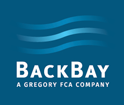At the beginning of September, Boston hosted its second annual Fintech Week, a five-day series of speakers, panels, demos, and fireside chats focused on the future of technology in finance, and our fintech team couldn’t resist stepping out of the office to hear insights from executives at fintech start-ups, regulatory agencies, and financial institutions. Here’s what they learned:
Keep up with the latest in fintech or risk becoming obsolete.

If there was one major take away from Boston Fintech Week, it would be that technology is evolving at a breakneck pace. With such rapid change disrupting all facets of the financial services industry, the message at all of the sessions underscored how crucial it is as a financial technology PR professional to stay on top of the latest fintech news in order to understand your client’s relevance and potential in the market.
This struck me the most during the Buy-side Digital Transformation session. The moderator, Openfin Director Chris Albrecht, asked panelists where they saw digital transformation headed in the next five years, to which one panelist replied that there was no way anyone could predict what technology will look like in five years due to how quickly it changes. Even three years in advance would be a risky guess. The shelf life of technology’s usefulness isn’t nearly as long as it used to be, so what we’re seeing now will likely be obsolete in a few years’ time. For instance, another panelist during that session predicted that he believed there would be a competitor to blockchain that will challenge blockchain’s existence, which is fascinating since blockchain is currently seen as a revolutionary technology for the financial services industry.
Staying up-to-date on these trends is key to providing clients with the best PR and marketing support. By knowing what’s new and relevant in the market, you can then understand how to position your client’s work and offer them as sources to speak on industry hot topics.
Dedication to your company’s mission is critical for long-term growth.
 One of the more memorable panels I had the opportunity to sit in on was a dual case study featuring Flywire CEO Mike Massaro and Toast CEO Chris Comparato. Both companies have come a long way – from humble startups with an eye for disruption, to established industry players in their respective verticals raising over $100 million each. The session offered the type of C-level insight attendees hope for, but rarely find. They were honest about their challenges, most of which had to do with early fundraising efforts.
One of the more memorable panels I had the opportunity to sit in on was a dual case study featuring Flywire CEO Mike Massaro and Toast CEO Chris Comparato. Both companies have come a long way – from humble startups with an eye for disruption, to established industry players in their respective verticals raising over $100 million each. The session offered the type of C-level insight attendees hope for, but rarely find. They were honest about their challenges, most of which had to do with early fundraising efforts.
From a communications perspective, I thought their perspectives on vertical industry expertise and managing a brand undergoing periods of rapid growth were most interesting.
Mike Massaro had no shortage of stories to offer when talking through the ups and downs of trying to grow a business in a competitive market (payments). Once a company in this arena is established, there are pressures to grow quickly. Attempting to serve as many industries as possible is tempting, but in the long run may not be sustainable as you begin competing with other firms doing the same thing. Massaro cited Flywire’s dedication to being an early leader in serving the higher education industry as one of the reasons why they were able to withstand a slump and come out well positioned for the future.
Massaro bridged this statement to a recent conversation with an education institution client who wanted to introduce him to the treasurer of their related healthcare institution that was facing similar issues around payments. Flywire, having been laser focused on education up until that point, had built up and solidified its reputation so that expanding its services to other like-institutions made sense.
The phrase “you can’t be everything to everybody” is arguably now a cliché, but it has been proven out time after time. Sure, behemoths like Amazon or Google are able to be everything to everybody, and are now embedded in our lives in multiple ways. But even they started somewhere and have developed consistent messaging at their cores. The point is, deliberate growth isn’t always exciting at first, but it is more conducive to long-term success and impact.
In my opinion, the lessons learned for communicators was 4-fold – 1) stay true to who you are as a brand/company, 2) be specific in your mission and vision, 3) understand your key audiences, and 4) make sure your communications and PR strategy aligns with and supports the mission.
At the end of the day, the customer comes first.
 Another cliché, “The customer is always right”, came front and center during the “Banks and Fintechs: Obsolescence or Bridges?” panel where bank and fintech executives gathered to discuss how they envision the future of banking to look with the recent and rising popularity of fintechs. The panelists agreed that the future involved strategic partnerships between banks and fintechs that would elevate the customer experience.
Another cliché, “The customer is always right”, came front and center during the “Banks and Fintechs: Obsolescence or Bridges?” panel where bank and fintech executives gathered to discuss how they envision the future of banking to look with the recent and rising popularity of fintechs. The panelists agreed that the future involved strategic partnerships between banks and fintechs that would elevate the customer experience.
In fact, Steve Le Roux, CEO and Founder of Challenger Bank Envel Bank, stated that consumer behavior is the main driver in the evolution of fintechs and banks. Understanding the underlying psychology behind consumer behavior is what will separate the winners and losers in the race to go digital. The reason why Amazon is so successful? They focus on this psychology, which research has shown points to one thing: time. “The reality is we’re not competing with our direct competitors; we’re competing with time,” Le Roux said. A key takeaway from this event for me was that financial Institutions that focus on creating convenience for their customers will be amongst the winners.
This was echoed by the other panelists, including Chris Tremont, EVP of Virtual Banking at Radius Bank, who believes that firms who can tie themselves into consumers’ everyday lives – such as helping them to manage their finances, taxes, debt, etc. – will be the ones that excel. Lisa Shields, CEO of FI.SPAN, emphasized just how important it was for today’s firms to truly focus on the customer experience. “If you make customers’ lives easier to the point where they don’t have to remember another username and password… you have the opportunity to be a one-stop shop.”
What this boils down to is, as Mr. Le Rox said, “Don’t focus on the app, focus on the user experience and bringing convenience.”
For marketing and communications professionals, this shows that taking the time to really understand your audience and tailor your product to meet their needs – whether it be a pitch to a journalist, a fact sheet, or a commercial – will pay the biggest dividends in the end.
All in all, Boston Fintech Week did not fail to bring valuable lessons and thoughtful insights on the latest technological trends impacting the financial services industry at large. We can’t wait to see what next year’s event will have in store!


